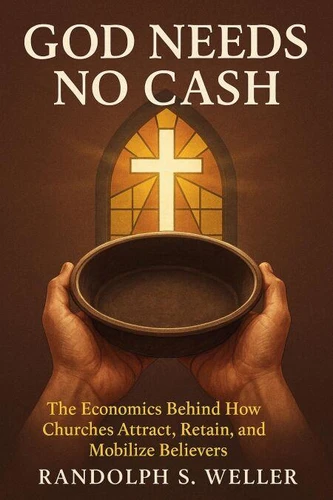God Needs No Cash
Par :Formats :
Actuellement indisponible
Cet article est actuellement indisponible, il ne peut pas être commandé sur notre site pour le moment. Nous vous invitons à vous inscrire à l'alerte disponibilité, vous recevrez un e-mail dès que cet ouvrage sera à nouveau disponible.
Disponible dans votre compte client Decitre ou Furet du Nord dès validation de votre commande. Le format ePub est :
- Compatible avec une lecture sur My Vivlio (smartphone, tablette, ordinateur)
- Compatible avec une lecture sur liseuses Vivlio
- Pour les liseuses autres que Vivlio, vous devez utiliser le logiciel Adobe Digital Edition. Non compatible avec la lecture sur les liseuses Kindle, Remarkable et Sony
 , qui est-ce ?
, qui est-ce ?Notre partenaire de plateforme de lecture numérique où vous retrouverez l'ensemble de vos ebooks gratuitement
Pour en savoir plus sur nos ebooks, consultez notre aide en ligne ici
- FormatePub
- ISBN8230761358
- EAN9798230761358
- Date de parution20/06/2025
- Protection num.pas de protection
- Infos supplémentairesepub
- ÉditeurIndependently Published
Résumé
Why do some churches thrive while others wither? What turns passive attendance into active contribution? And what happens when ancient faith meets modern economics? In God Needs No Cash, Randolph S. Weller explores the often-overlooked financial and strategic forces driving the modern church. Drawing on case studies, historical insights, and contemporary research, Weller uncovers the mechanisms by which churches attract new believers, foster loyalty, and convert faith into action-both spiritual and economic. Far from cynicism, this book offers a clear-eyed look at the "spiritual marketplace, " where sermons meet strategy, and sacred missions are sustained by sound economics.
From the role of charismatic leadership to the power of community networks, from tithes to digital outreach, God Needs No Cash provides a compelling analysis of how faith-based institutions adapt, grow, and remain relevant in an increasingly secular world. This is essential reading for sociologists, theologians, church leaders-and anyone curious about the intersection of belief, behavior, and the economics of belonging.
From the role of charismatic leadership to the power of community networks, from tithes to digital outreach, God Needs No Cash provides a compelling analysis of how faith-based institutions adapt, grow, and remain relevant in an increasingly secular world. This is essential reading for sociologists, theologians, church leaders-and anyone curious about the intersection of belief, behavior, and the economics of belonging.
Why do some churches thrive while others wither? What turns passive attendance into active contribution? And what happens when ancient faith meets modern economics? In God Needs No Cash, Randolph S. Weller explores the often-overlooked financial and strategic forces driving the modern church. Drawing on case studies, historical insights, and contemporary research, Weller uncovers the mechanisms by which churches attract new believers, foster loyalty, and convert faith into action-both spiritual and economic. Far from cynicism, this book offers a clear-eyed look at the "spiritual marketplace, " where sermons meet strategy, and sacred missions are sustained by sound economics.
From the role of charismatic leadership to the power of community networks, from tithes to digital outreach, God Needs No Cash provides a compelling analysis of how faith-based institutions adapt, grow, and remain relevant in an increasingly secular world. This is essential reading for sociologists, theologians, church leaders-and anyone curious about the intersection of belief, behavior, and the economics of belonging.
From the role of charismatic leadership to the power of community networks, from tithes to digital outreach, God Needs No Cash provides a compelling analysis of how faith-based institutions adapt, grow, and remain relevant in an increasingly secular world. This is essential reading for sociologists, theologians, church leaders-and anyone curious about the intersection of belief, behavior, and the economics of belonging.



